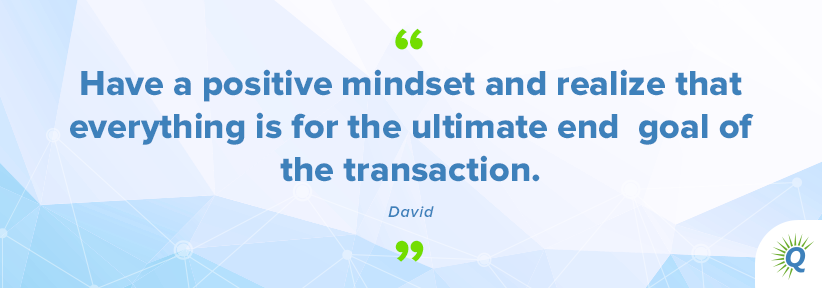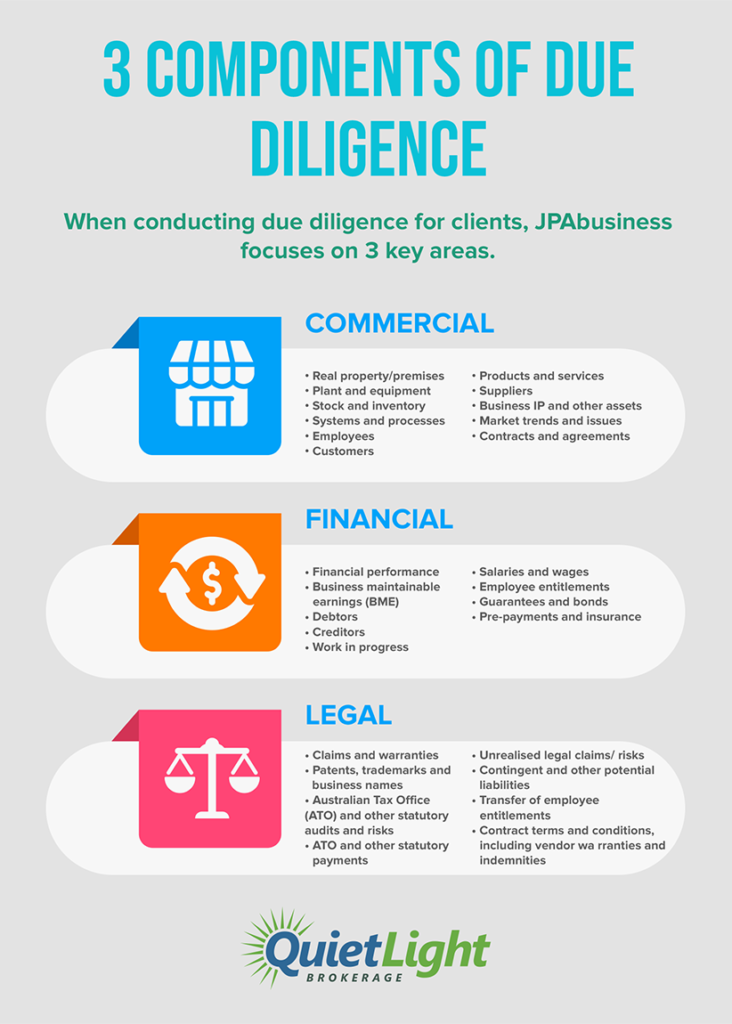Topics:
Never Miss a Beat - Get Updates Direct to Your Inbox
FILTER:


How to Succeed at Selling an Online Business
By Quiet Light
Building a business is a lot like parenting. You spend late nights with your baby during the early days, worry about it all day long, and immerse yourself in books that will hopefully help you feel less unprepared. But what happens when it’s time for that baby (AKA your business) to graduate and move out of the nest? When it’s time to list your online business for sale, it can feel messy, emotional, and confusing. It’s best to have an idea of what to expect before you plan to exit your business. Learn from Quiet Light’s team of internet business brokers, who share their expertise on how to streamline selling your online business.
IN THIS POST
5 Things To Expect When You Want To Sell An Online Business
Draw The Line Between Being Honest And Being A Suckah
Stop Focusing On The Wrong Things
Plenty of entrepreneurs describe their business as their “baby.” And based on the amount of time, love, and worry you spend on your business, you might as well be changing a newborn’s diapers.
Like parenthood, running a business can be rewarding, terrifying, and confusing. Once you’re ready to exit your business, it can be even more terrifying and confusing, especially if you’ve never exited from an online business before. The result is burnout and a lower payout for your hard work.
While there’s no such thing as a one-size-fits-all selling experience, it helps to know what you can expect while selling your business. Like good ol’ parenthood, sometimes the best way to learn is by following those who have done it before you. Instead of calling your mom at 2 AM for swaddling advice, though, you’ll want to consult with experienced entrepreneurs who know their way around an exit.


Quiet Light’s team of brokers (who are all former entrepreneurs, by the way), have been around the block when it comes to listing an online business for sale. They shared their wisdom on the Quiet Light podcast, showing how sellers can prepare for the emotional and sometimes difficult process of selling their business.
Let’s dive headfirst into the rewarding world of online business exits with Quiet Light’s Amanda Raab, Jason Yelowitz, David Newell, Bryan O’Neil, and Mark Daoust.
5 Things To Expect When You Want To Sell An Internet Business
So. You’ve grown a biz from its early days as a shaky startup and into a lean, mean sales machine. Congrats! But despite the success, plenty of entrepreneurs decide they feel uninterested or burnt out from the biz and decide to sell.
Instead of stumbling your way through the process of selling your biz, learn from the entrepreneurs who have gone before you. Follow these 5 tips to make the most of selling your online business—saving time, earning more money, and preserving your sanity.
1. Be A Good Seller
Kindergarten taught most of us how to be decent human beings. But, like other stressful times in your life, selling your online business can make you feel stretched thin. Because of this, it’s not uncommon for sellers to be a little “challenging” during the sales process. And hey, that’s understandable. This business is your life, and it’s no small feat handing the keys over to someone else. “A seller has built a valuable asset and want to make sure the deal goes through. To an extent, they’re going to be a little more challenging,” Mark says.
With that said, if you want to have a smooth and successful transaction, you need to be a good seller. In fact, when you’re a good seller, you can get more money for the sale of your business. This won’t make your $1 million business a $2 million company or anything, but being likable will encourage buyers to work with you.


In plain English, when you’re a jerk, you’ll earn $0 for your business. But when you’re kind and likable (even under pressure), you can go from getting zilch for your online business to getting $1 million. “If you’re not a good seller, it’s going to spook a buyer to the point where they simply don’t want to complete a deal,” Jason says.
Remember, this process is going to be stressful. Rewarding, but stressful. You might not realize your behavior is turning buyers off, and that’s why it’s important that you stay open to feedback. Quiet Light advisor Amanda says that’s the number-one thing she recommends sellers prepare for: take feedback from your buyers and adjust to what they need to see.
After all, the buyer is going to keep working with you after they take over your online business for sale. They need to know that you’re not only easy to work with, but open to their feedback. “If a seller isn’t willing to hear buyer feedback, it makes it hard to get the deal done,” Amanda adds.


Listen to the Source of this Post:
This blog post is based on a podcast episode that we recently recorded. Listen to the full episode here:So yes, likability is essential to being a good seller. When you’re likable, you have better conversations, which leads to better deals, which leads to more money in your pocket. In some situations, being kinder than necessary can even net you more favorable deal terms.
The Most Important Quality You Need As A Seller
Likability is important for pushing the sale through, but it’s not the number-one quality you need to sell your business. All of Quiet Light’s advisors agree: you need to be honest and transparent.
This is no different than parenting. Like giving your kiddos a talk about the birds and the bees, sometimes honesty is best (you aren’t telling your kids that old line about the stork anymore, right?).
Buyers look at your online business in terms of risk. If you don’t want to talk about certain aspects of your business, that’s going to raise a red flag for them. If it seems like you’re hiding something or generally give off a slimy feeling, they’re going to run for the hills. Depending on the information, you could lose the sale when you refuse to disclose certain data.
3 Ways To Be A Good Seller
So what steps can you follow to be a good seller? It distills down to three things:
- Be honest: We touched on this before, but honesty is key. It’s the best way to reduce perceived risk from your buyer. And don’t worry, we’ll touch on how you can be honest without giving away your secret sauce in just a sec.
- Know your own business: Do you know your financials? Or historical trends? Or why certain things happened? That’s good! Good sellers have deep knowledge about their business that they’re more than happy to pass along to the buyer.


- Prepare to do the work: You probably already know this, but selling your business isn’t going to be easy. Partner with the right people to stay on top of the selling process without losing your mind. This will keep you in a clearer mental state (which makes it easier to be likable) so you can sell your business.
2. Draw The Line Between Being Honest And Being A Suckah
“But how can I be honest when a buyer is asking me to share super-secret details? How can I sell my business without getting raked across the coals?” you might wonder. I’m not saying you have to divulge your top-secret processes in the first phone call. After all, didn’t your parents withhold certain information for your own good? Like not showing you how to drive a car until you were old enough to do it safely?
Buyers are going to ask these pointed questions anyway, but instead of outright refusing to give them the information, come prepared. This will not only help you look more honest and trustworthy, but will make buyers more comfortable with the sale. Follow these 4 tips to balance honesty with divulging trade secrets.


1. Set Expectations Upfront (Internet Business Brokers Can Help)
A diligent buyer is going to come out of the gates swinging, asking all kinds of sensitive questions about your online business. They might feel taken aback when you refuse to share, say, a list of clients with them.
You can keep buyers from feeling jilted by managing their expectations. “You have to create expectations for when you’re going to open up certain information,” Amanda says. On the first phone call, you might say, “I won’t share my suppliers or proprietary information until we have LOI to sell my business.”
When you come prepared with a list of what you’ll share and when, the buyers feel more comfortable because they know what to expect. So if you don’t want to divulge your innermost secrets to a total stranger, you can set boundaries on what you share and when. Try providing a timeline of what you’ll provide, when, and under what conditions. Once you and the buyer trust each other more, you can share a little more freely.


2. Meet In Person
There’s just some stuff you can’t do over the phone. When you’re trying to boost trust between yourself and the buyer, consider meeting in person. Like online dating, you can prove the person is, in fact, serious about the offer instead of trying to catfish you. “When a buyer and seller meet in person, it has a huge impact on what information is shared,” Amanda says.
Many sellers open up about their online business after they meet the buyer in person. That’s because you can usually get a feel for how trustworthy someone is in person. Trust your gut here: look at the buyer’s energy and see if they’re trustworthy with sensitive information.
3. Sell The Sizzle, Not The Steak
What information is up for grabs for your buyers? It really depends on your business, business model, defensibility, and industry. A SaaS business sure as hell won’t share their source code early on in the process, for example. “Businesses dependent on a single traffic source might hold the details of those traffic sources,” Bryan adds.


Instead of giving away trade secrets, try to understand what the buyer is looking for when they ask for your source code. Are they asking because they want to make sure you’re reputable? Or that your developers are up to par?
If you can figure out what the buyer wants to get out of that sensitive information, you can find a way to share without exposing your online business. “Figure out the core of what they want and get creative about how to supply it,” Jason says.
For example, one of Quiet Light’s advisors was helping with a SaaS sale. He found out that the buyer wanted to understand the architecture of the code before proceeding further with the online business for sale. Quiet Light worked with the seller to give the buyer a high-level snapshot of the code and how it was put together. This way, the buyer got the information he needed without the seller divulging the full code.


And hey, keep in mind that your buyer is going to sign a five-page NDA before they hop on a call with you. “Buyers sign an NDA that says they’re not allowed to scan for ideas to steal,” Jason says. If you slip up and mention something proprietary, the NDA says the buyer can’t turn around and use that information to compete with you. You’d be within your rights to take them to court over it.
4. Bring In A Third Party
Another way to draw the line between honesty and secrecy is to bring in a trusted third-party. This is common when the buyer wants a full financial audit of the online business they’re buying. They’ll bring in an expert third-party that doesn’t have skin in the game to do the audit. “Financial due diligence is so tedious. Bringing in a third party helps the buyer focus on getting prepared,” Amanda adds.
When you bring in a third-party, the buyer gets the reassurance they need and you protect your business from prying eyes before the sale is finalized. Another way to do this is with the SaaS company example. For that sale, Quiet Light also brought in a third-party investigator to look at the code. They then reported their findings (that the code was A-plus!) to the buyer.


3. Listen to Your Internet Business Broker When It Comes to Negotiation
First-time sellers are often like parents-to-be: they have a big idea of how they think the process will work and what they’ll get out of it. But if you head into a transaction assuming you’ll get $1 million in your pocket, you’re forgetting that you have to negotiate a slew of things (much like convincing a toddler to try new foods).
When you have an online business for sale, you don’t just get cut a check for the keys to the kingdom. You need to negotiate at least half a dozen items with your buyer before finalizing the sale. And yes, those items will affect the final dollar amount in your bank account.


The most popular negotiation chip sellers use is consulting arrangements. And hey, I get it: you’re tired of running your online business and just want to be rid of it. But when you throw in a consulting agreement, it makes your buyer feel more comfortable with the purchase. Heck, it’s a good source of income for you, too, so why not take it? This does so much for your buyer because now they know they get a lifeline to your knowledge after the business handoff.
4. Stop Focusing On The Wrong Things
“I was able to sell my business for $2 million!”
“Well my business sold for a crazy 4X multiple! Ha!”
You’ve probably heard other entrepreneurs humble-bragging about their businesses. While that’s great that they got a huge wad of cash, these braggarts might be clouding your judgment when it comes to your own sale. In fact, sellers often focus on the wrong things when they’re pricing out their business. “A lot of people, both buyer and seller, get hung up on the multiple,” Jason says.


When you focus too much on the headline price and multiple, you’re unknowingly taking a lot of stuff off the table. “There’s a lot more to an offer than just the total price,” Bryan says. For example, are you so focused on an arbitrary dollar amount that you don’t want to do smart long-term strategies, like seller notes? This sounds like a bad idea at first glance, but seller note deals and alternate deal structures will put way more (and I mean way more) money in your pocket during a sale.
The thing is, you shouldn’t get hung up on stuff like headline price and multiples. Your online business is like a human being: it’s complicated. You can’t just slap a price on it and assume that’s the whole story. The market determines your final price and your multiple. It’s tempting to push up your multiple or price for the bragging rights, but if the market doesn’t support that, it’s going to backfire on you big time.


So, what elements matter when it’s time to sell? It boils down to 2 things.
- Deal structure: When you structure a deal to minimize tax liability, you can save potentially millions in taxes. Instead of getting a gigantic lump sum that pays Uncle Sam millions in taxes, you can be smart about your structure and minimize liability. “Headline price gets a lot of focus, but it’s really about how much you get after-tax,” Jason says.
- Equity: In some cases, an asset sale might tax the living daylights out of you. In this case, it makes more sense to retain equity in your company when you list your online business for sale. You won’t get all of your money right now, but if you structure this right, equity can lead to “mailbox money” that funds your retirement.
Sale price and multiples are fun, but these numbers don’t mean much. Instead, focus on deal structure and equity to get more value from your online business sale.


5. Have Reasonable Expectations
Parenting is all about dealing with unrealistic expectations. Whether Johnny wants to eat toast “without the bread” or Alice wants a real unicorn for her birthday, you get used to mitigating unreasonable expectations.
As a first-time seller, you might be prone to having unrealistic expectations, too. Actually, even if you’ve sold an online business before, your expectations might not match the market. That’s because the market is always changing. Quiet Light’s website brokers try hard to stay on top of this, but find that the market can completely reverse in just a few months.
When you hear about other entrepreneurs selling at a 4X multiple, you start expecting the same when you list an online business for sale. But when you hear about big multiples from other deals, you don’t know the composition of that offer.
How much of that was cash? Was equity involved? You don’t know! For example, sports athletes make headlines for earning a $120 million contract. But that’s just a headline-grabber; in reality, the athlete only earned $10 million because of the terms of that deal.


It’s not unusual for sellers to have unrealistic expectations. The key is to be open to feedback. “Sellers need to be open to feedback and coming back down to reality,” Amanda says. The best way to do that is to rely on your advisors’ expertise and the right data to get you acclimated to the reality of the market.
No, Internet Business Brokers Don’t “Set The Price”
Picture this: a seller-to-be calls an internet business broker and asks for a valuation. When they get the valuation they say, “Well, XYZ internet business brokers told me I was worth more. Can you get me more?”
The answer is no, and here’s why.
Internet business brokers don’t set the price for your online business. “There’s no point in negotiating the value of your business with a broker because it’s not within their power to determine that,” Bryan says.
Valuations are just an estimate of what you could fetch in the market. Unless your internet business broker is psychic, they can’t know for certain what your business will earn from a buyer. So when you’re looking at a valuation, it’s important to remember that it’s a range that depends on a lot of factors. Don’t let competing valuations cloud your judgment or damage your sense of reality. That said, there are a lot of variables that go into selling a biz, so don’t hesitate to pick up the phone and pick a broker’s brain. We’re more than happy to let you pick away!
To get a good sense of your value, sometimes you just have to test the market before you list your online business for sale. Lots of sellers have crazy-high expectations and price their business to reflect that. Unsurprisingly, the business flops when it goes to market and they have to start all over again.
Your time is valuable, boss. Don’t waste it by clinging to an unrealistic image of what you think your business should be. If you think you’ve got a $10 million business and the market only offers $1 million, it’s not time to sell. Hold onto your business at that point, because it means the business matters more to you than the money.
Need Capital for Growth?
Visit Our Partner Page to View a List of Growth Capital Firms We’ve Worked with Over the Years.
Expect Great Things
Building a business is like raising kiddos. It’s hard work and it’s often thankless, but once it’s time for your exit, you can reap the rewards of your hard work. Quiet Light’s advisors have seen sellers fall for mistakes that make selling their online business more of a hassle. Let’s skip over the messy bits; learn from the folks that have come before you.
By being a good seller, drawing the line between honesty and oversharing, negotiating, focusing on the right things, and managing your expectations, you’ll sail through your sale in flying colors. Not only will you save yourself heartache and time, but by knowing what to expect when you have an online business for sale, you can even earn more money in your pocket.
Now go enjoy your cash and your empty nest as you set off on your next entrepreneurial journey.





